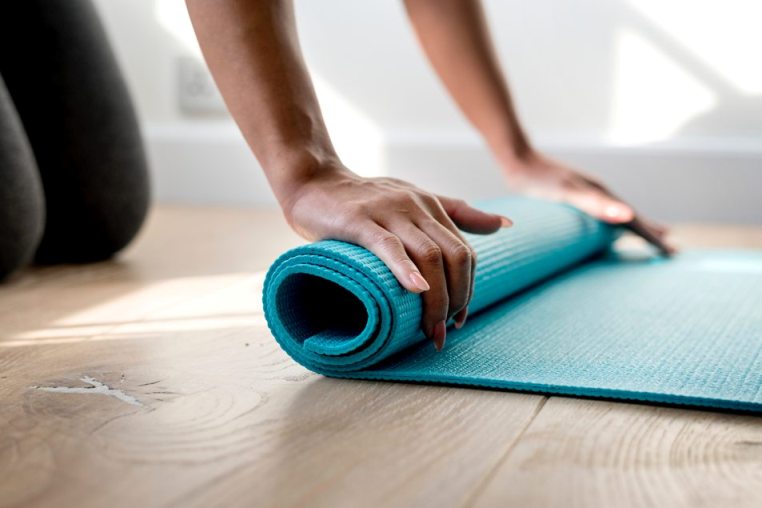It’s never a bad idea to start a regular workout program. Studies show that exercising can have a positive impact on your health and boost you mood. Regular physical activity can impact your mental and physical health and can have multiple social and emotional benefits.
We all know that physical activity is good for us, but how exactly does it affect our brain and our body?
Let’s see how that actually works and what you can do to improve your mental and physical health.
What Happens to Your Body When You Exercise?
Exercising isn’t just about losing weight and improving your physical appearance and fitness.
When you exercise your brain releases endorphins which are hormones that reduce pain, and trigger a positive and happy feeling. Exercise also triggers the release of chemicals such as dopamine, serotonin and norepinephrine, which help improve and boost your mood.
Physical activity also helps new blood vessels to develop in the brain and if you’re active more regularly more capillaries start to grow in the muscles you are using.
When you exercise, everything in your body starts communicating better, your blood flow increases, and your cells start transporting important biochemical messages much faster to one another.
Your body temperature also rises, and those good feelings of happiness and achievement start coming, as you slowly release your daily stress and anxieties.
As your heart rate goes up, it improves the blood and oxygen flow to the brain, improving the brain’s function, which also improves your memory and learning capabilities.
Here are some of the health benefits you can get from regular exercise.
The Benefits of Exercising Regularly
Although many people usually exercise to get into shape, build muscle or lose weight, physical activity can have multiple other physical, mental and emotional benefits.
Regular exercise helps:
- Lower your risk of heart and circulatory disease
- Reduce stress and anxiety by cutting down on stress hormones
- Boost self-esteem
- Improve sexual function and boost your libido
- Improve sleep
- Reduce tension and muscle pain
- Strengthen your immune system
- Improve memory and attention span
- Relieve depression.
Exercise can help relieve mild to moderate depression. That’s why if you’re often feeling down and moody, it might be helpful to get out more and be more active.
Regular exercise helps you use your insulin properly and helps your cells use glucose even when your body hasn’t produced enough insulin.
How Does Exercise Improve Mood?
Exercising can have an immediate, yet long-lasting positive benefit on your brain. It can help you focus, de-stress and improve your mood.
It can also protect your brain from different conditions like dementia, Alzheimer’s disease and depression. Those are just some of the powerful effects that physical activity can have on the brain.
Right now, let’s have a look at how exercise can help improve and boost your mood.
People who live busy and hectic lives often put their body under a lot of stress. As a result, the levels of the three major stress hormones: adrenaline, norepinephrine and cortisol increase, affecting your health and contributing to high blood pressure, anxiety and sometimes even depression.
Luckily, here’s where regular exercise and physical activity jump in.
Regular exercise has been found to reduce anxiety and improve mood by:
- Boosting the production of endorphins and serotonin in the brain, which are also known as ‘feel-good’ chemicals
- Improving concentration and focus
- Distracting your mind and helping you focus on the activity you’re doing rather than your job, school, housework or other things that might be stressing you out
- Improving the quality of your sleep and most importantly
- Increasing your energy levels.
If you want to discover all the unbelievable brain-changing benefits of exercise check out this TED Talk video by Neuroscientist Dr. Wendy Suzuki.
Final note:
You don’t have to start off with a rigorous and tough exercise regimen at first.
15-20 minutes a day every other day is more than enough to get you started. Later on you can work it up to 30 minutes a day, 4-5 days a week.
Don’t forget to combine your regular physical activity with a well-balanced diet in order to maintain a good health and feel positive and more productive, as well as maintain a healthy weight.
Don’t Know Where to Start?
This is a common problem among those who have not exercised regularly, so don’t think it’s just you who suffers from this problem.
The good news is that you can get help. Any local gym will have personal trainers on hand to help and at a lot of places you get a free session when you sign-up.
Personal trainers can, however, get quite expensive so you might not be able to have one all of the time.
Another option for you is to have an online personal training program. A simple Google search will help you find lots of cheap programs, from DIY body transformations to purely online PTs who have coached celebrities.




